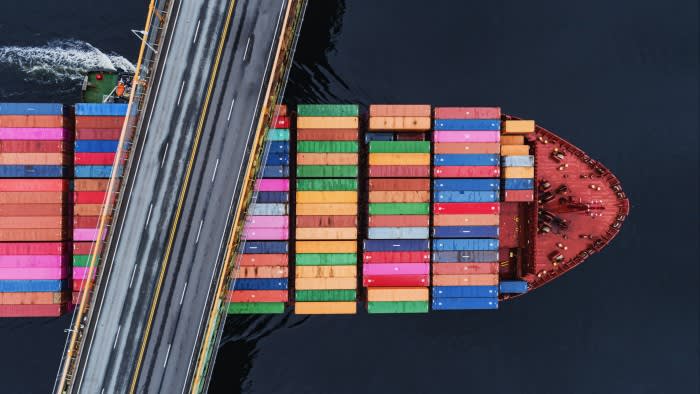
The writer is a former central banker and a professor of finance at the University of Chicago’s Booth School of Business
The push for international openness to trade and capital flows has always been an elite project, but typically with enormous benefits to the domestic consumer, and to poor countries who develop by catering to foreign demand. But the great financial crisis of 2008 destroyed trust in the elite. One immediate casualty was globalisation. The obvious costs of inviting imports, for instance in terms of lost domestic jobs, are easy for the public to see, while the benefits often require further layers of explanation. Conversely, protectionism is an easy sell. It dominates the discourse once trust is lost, even more so if one’s primary trading partner has geopolitical ambitions.
Rather than pushing for a better globalisation in which past mistakes are addressed, too many of today’s elite are willing to hedge it with enough caveats that it becomes rank protectionism. For instance, US national security adviser Jake Sullivan’s evocative picture of shielding a “narrow yard” of security-relevant technologies with “high fences” has expanded quickly into a much broader yard where any device or platform that collects information can be banned on security grounds, whether it be Chinese EVs or TikTok in the US or Apple and Tesla in China.
Similarly, while it makes sense to examine takeovers by geopolitical rivals of companies in defence-sensitive areas, we now have the US subjecting the proposed takeover of strategically inconsequential US Steel by friendly Japan’s Nippon Steel to “serious scrutiny”.
Once open borders are no longer the default, new impediments to competition proliferate. Europe wants to keep out Chinese EVs because of the heavy state subsidies Chinese manufacturers enjoy. At the same time, Europe subsidises green energy heavily, so its manufacturers will have lower carbon emissions, while it plans border tariffs on high-emission products made by foreign manufacturers, many of whom don’t have access to subsidised green energy. Everyone subsidises today, the question is where and by how much.
Indeed, why bother with tariffs when one can handicap the foreign competitor directly? Emerging markets compensate for the lower productivity of their workers with lower wages and longer hours. The renegotiated USMCA (NAFTA’s replacement) requires a minimum hourly wage for Mexican workers that make cars for the US. Mexican workers ought to earn more over time, but should that not be determined competitively in Mexico?
Protectionism is contagious. As the developed world turns its back on open borders, poorer countries are succumbing also, with average tariffs rising in LDCs over the past decade.
The new elite project is industrial policy, with a focus on creating national champions. Partly as a natural consequence of the market failures during the financial crisis, partly from drawing the wrong lessons from China’s state capitalism, and partly from a desire for national security, faith in government’s ability to pick domestic winners has grown. A current focus is subsidies to chip manufacturers, which allow political sponsors to claim they are modernising the economy even while protecting security interests.
Yet even if countries have the technological competence to manufacture chips, very few can bring the entire chip supply chain within domestic borders or reliably friendly shores. If so, the tens of billions of dollars spent on chip subsidies will neither buy them security, nor given the likely glut in global chip manufacturing, a viable modern industry. Put differently, Russia has found ways to make chip-reliant armaments without a chip industry, even while being subject to sanctions by major chip producers.
Cross-border investment (as a fraction of GDP) has already slowed, so will trade and growth, especially in emerging markets and developing countries. The IMF projected 7.2 per cent growth for these countries in 2006, but only 4 per cent in 2023. Low growth could increase internal political fractures within countries and possibly conflict between nations, triggering mass migration and yet more protectionism and government intervention.
To break this vicious cycle, we need a dialogue, perhaps starting with the US and China, or initiated by more neutral countries, on how the global system of trade and investment can accommodate geopolitical rivals, subsidies and new information-intensive products without breaking down. This will require new rules of the game, more data and possibly new independent institutions. And, of course, countries will have to relearn the lesson that governments are not good at picking winners.
This post was originally published on Financial Times


